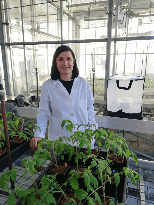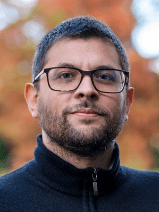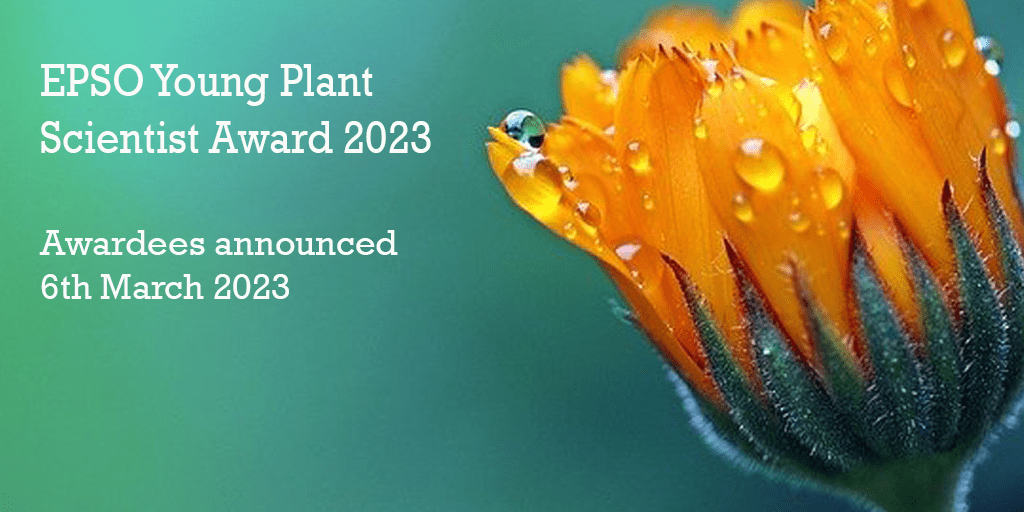NEWS
Stay updated on the latest developments in plant science policy and EPSO activities!
On 24th May 2022 EPSO member-scientists and policy-makers from sixteen countries across Europe held the sixth informal meeting to assess the situation for research and development on New Plant Breeding Technologies (NPBTs) after the ruling of the ECJ in July 2018.
They exchanged views on the current situation of genome editing (GE) in Europe and possible next steps to enable Europe to better address climate change, achieve food and nutritional security, and establish a sustainable agriculture in Europe and world-wide. Such steps should bring the discussion forward on the EU legislation and facilitating potential flagships. The meeting was held under Chatham House Rules.
The next meeting will be held in 2023.
EPSO offers to collaborate with policy-makers to develop an appropriate future-ready regulation to enable the European public sector, small- and medium-sized enterprises and farmers to contribute more comprehensively to food and nutritional security and to use all available tools to reduce the environmental impact of agriculture. Notwithstanding the technical option retained, EPSO supports a science-based revision of the present European legislation establishing a more proportionate product-based risk assessment. EPSO is also willing to contribute to the societal debate on genome editing and to communicate in a fact-based and yet accessible manner about innovative plant science and its societal role.
Jens Sundström, Alan Schulman and Karin Metzlaff
Read the 6th meeting report
Contacts:
Jens Sundström, EPSO Chair WG Agricultural Technologies
Alan Schulman, EPSO Chair WG Agricultural Technologies
Karin Metzlaff, EPSO Executive Director
EPSO initiated the YPSA awards to encourage the development of ideas and imaginative thinking in plant sciences.
EPSO is happy to announce the two winners of the fourth EPSO Young Plant Scientist Award: Jhon Venegas-Molina was selected for his fundamental plant research and Maria-Estefania Lopez Ortiz for her applied plant research.
Jhon and Maria-Estefania will have the opportunity to present their research during the Science Day of the EPSO General Meeting to be held in Düsseldorf, Germany on the 30.6.2023. In addition, each awardee will receive 200 € and EPSO will cover their travel to the meeting
We would like to thank the distinguished jury members Alan Schulman (chair), Marie-Theres Hauser, Angelo Santino, Timothy George and Odd Arne Rognli. The two winners were selected from among 32 PhD students who submitted from 24 different entities and 14 countries across Europe to the EPSO YPSA call.
Click here to read the full winner announcement.
Contact: Karin Metzlaff, EPSO
The 21st Europe-wide seminar of the series by the European Plant Science Organisation (EPSO) and aimed at the Plant Science community and its stakeholders.
TTT: The seminar will be held online each third Thursday of the month at three (CET).
On 16th March 2023 at 15:00 (CET) we will present three talks exploring “Aspects of Plant Health”

Dr Ainhoa Martinez Medina, CSIC, Spain: “Induced resistance by beneficial fungi against aboveground insect pests: current advances, gaps & perspectives”

Dr Pingtao Ding, University of Leiden, The Netherlands: “Future Challenges & Opportunities of Plant Disease Resistance: A Molecular Point of View”

Assistant Professor Giannis Stringlis, Agricultural University of Athens, Greece: ‘Interplay between plants & their microbiome’
The seminars will be hosted on Zoom and last approximately 1.5 hours. Numbers will be limited to 300 attendees and therefore please register early if you would like to join. There will be ample opportunities to ask questions and join the debate. So please join us to support this new and exciting initiative for European Plant Science by following this link just prior to the start of the seminar.
EPSO members register in advance for this meeting: Zoom link
After registering, you will receive a confirmation email containing information about joining the meeting.
In the coming months we will be on the lookout for talented plant scientists among the EPSO membership to present their findings and perspectives to the EPSO seminar series. If we approach you to talk, we hope you will be happy to support the initiative. This is a fantastic opportunity for both eminent world leaders and talented up-and-coming early career researchers to present their research to an international audience and to network with potential collaborators. If you wish to suggest a theme for one of the spring seminars and / or nominate yourself or one of your colleagues to give a seminar, we most welcome your suggestions. Please contact Tim George ([email protected]) to provide your name and potential talk title.
We look forward to seeing you all for the 21st EPSO seminar on the 16th March 2023
Tim George, Alan Schulman and Marie-Theres Hauser
EPSO Plant Science Seminar Series Organising Committee
Click here to read: Full EPSO news item
Contacts:
Tim George, Hutton / UK & EPSO Board
Alan Schulman, LUKE / FI & Adviser to the EPSO Board
Marie-Theres Hauser BOKU / AT & EPSO Board
Today we are delighted to publish our Fascination of Plants Day 2022 Success Stories which provide an insight into the wide range of inspiring events about plants held across the world last year.
The sixth biennial international Fascination of Plants Day was a huge global success with over 800 interactive events across 54 countries engaging thousands of people around plant science and the multiple uses of plants. Scientific institutions, universities, botanical gardens and museums, together with schools, farmers and companies offered a variety of plant-based interactive events and activities for all interested people from toddlers to grandparents.
People took to social media and shared their photos and event stories using the hashtag #PlantDay. As a result, EPSO increased the @PlantDay18May twitter account following to over 4,600 followers. Some Fascination of Plants Day events were carried in outside publications and media, broadcasted on tv and radio, and reported in local and national newspapers.
Many thanks to the over 54 National Coordinators and thousands of enthusiastic event organisers across the globe for engaging people from their local area, city, region and even the entire country in exciting events! This Fascination of Plants Day initiative would not be possible without you. Your efforts made this great success possible.
We also thank the many partners and contributors who helped EPSO engage its broad audience by providing resources to make this success possible: The Global Plant Council (GPC), the International Advisory Council on Global Bioeconomy (IACGB), Scientix, the Scandinavian Plant Physiology Society (SPPS), ISHS, Eucarpia, Copa and Cogeca, the Bayer Foundation and wikifarmer.
We invite you to join us in preparing for an even bigger and better Fascination of Plants Day in 2024! Start planning events in your country and keep tweeting about plants. We look forward to seeing you all and your fascinating interactive events in 2024!
Karin Metzlaff, John Fitzgibbon, Przemyslaw Wojtaszek and Trine Hvoslef-Eide
The Global FoPD coordinators
Click here to read: Full FoPD Press Release and Success Stories
Contacts:
John Fitzgibbon, EPSO Publications Officer
Karin Metzlaff, EPSO Executive Director
EPSO welcomes the European Commission consultation and provides input on the achievements and suggests where improve Horizon Europe and the next Framework Programme (FP) to have a higher impact.
The European Research and Innovation FPs are crucial to enable scientists and innovators across Europe to collaborate to generate knowledge, to apply this knowledge to address today’s and future challenges and to help build a strong, competitive and resilient, inclusive and democratic European society and improve life on earth.
Plant scientists took an active role in the EU FPs from the start and want to contribute in the future.
They are active in pillar 1, mainly in the European Research Council and the Marie Skłodowska-Curie Actions, both working very well.
They could contribute more to pillar 2, particularly in cluster 6 on Food, bioeconomy, natural resources, agriculture and environment. To this end, we suggest the following improvements:
- Further implement the following concepts:
- Address Food and Nutritional Security, environmental sustainability, biodiversity (natural and cultivated) and human health in parallel as much as possible.
- Improve / adapt crops towards ‘Diverse crops for diverse diets and human health and resilient production’.
- ‘Combine approaches on crop improvement, crop management and crop processing’.
- Policy makers should define the goals but leave the pathways to how to achieve these open to the stakeholders
- Create a new heading ‘Enabling sustainable crop improvement’ in the Work Programme and / or partnership ‘CropBooster-Quest’:
- CropBooster-Quest – Plant (systems) biology, crop improvement and plant breeding to achieve a critical mass investment enabling the community to substantially help addressing the challenges mentioned above and interacting with partnerships on biodiversity, agroecology, food systems.
- To bridge the gap until a new partnership can be active, add the heading ‘Enabling sustainable crop improvement’ in the Work Programme.
- Better link the health cluster (1) with the food, agriculture, biotechnology cluster (6) to truly enable plant biologists, breeders, processors, nutritional scientist and health experts to interdisciplinary research and innovation to improve nutritional compounds in plants for the human diet, which are then further protected during crop processing and human digestion. In addition, plant made pharmaceuticals can be co-developed for medical purposes.
All scientists would benefit from more general improvements in pillar 2 across all disciplines and sectors:
- Types of action: Add Research Actions (RAs) in pillar 2 to overcome the gap of collaborative basic research and complete the research and innovation cycle.
- Identify funding priorities: Consult European academic associations. Define the goals, but not the pathways to how to reach these to truly enable innovation.
- Implementation procedures: Increase trust in and flexibility for beneficiaries.
In the EPSO position paper we briefly explain each of these recommendations.
EPSO looks forward to further discuss and help implement these recommendations with colleagues from the European Commission and the Member State ministries and funders.
Click here to read: Full EPSO position paper on Horizon Europe and beyond
EPSO submission to the EC consultation is available here
Contacts:
Karin Metzlaff, EPSO Executive Director, BE
Odd Arne Rognli, NMBU, NO & EPSO President
The Bayer Foundation is seeking exceptional young scientists who see collaboration as an opportunity to increase the impact of their research and are seeking to build a global scientific network.
Master & PhD students from all fields of the natural sciences or data science whose research has fundamental or applied relevance to the crop science industry are eligible for up to 10,000 € in funding for an international placement or research projects of up to six months that are complementary to current or future scientific studies.
People studying in Germany must undertake placements in a second country & those studying outside Germany must undertake their fellowships at a German research institution.
The application portal https://www.bayer-foundation.com/science/fellowships-stipends#ForMaster opened 13.2.2023.
The foundation also has fellowships available in Drug Discovery Sciences & Medical Sciences.
For any questions, please contact [email protected].
EPSO collaborates with the Bayer Foundation on the 7th International Fascination of Plants Day (FoPD) around 18th May 2024 https://plantday18may.org/ .
Click here to read: Full ‘Jeff Schell Fellowships announcement’
Contacts:
Bayer Foundation
Karin Metzlaff, EPSO Executive Director

